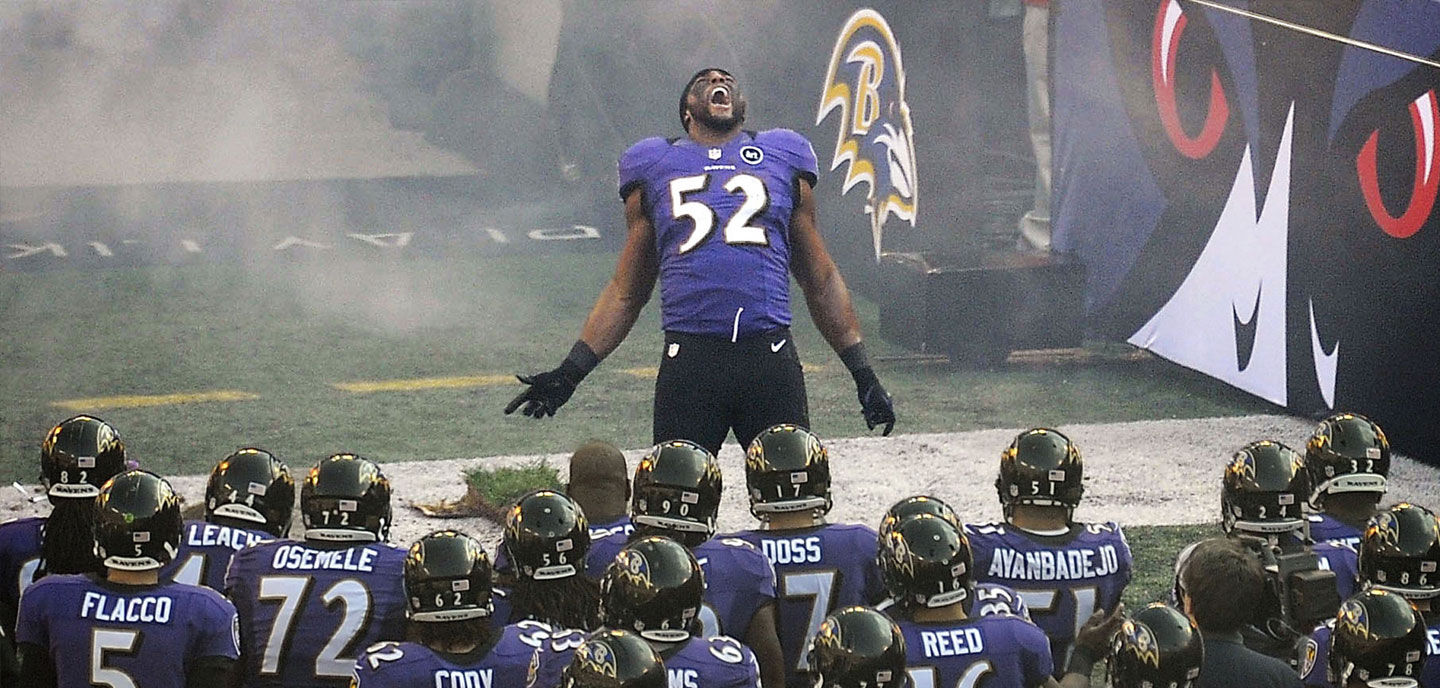Our world today views athletes as leaders.
You don’t have to look very far to see examples of athletes whose actions and words have set an example that others have followed, for better and for worse. However you may feel about Colin Kaepernick’s refusal to stand for the national anthem, you can’t deny that his actions have sparked a very important conversation.
His choice has created a dilemma for other athletes and coaches for what to do during the anthem at their next game. I find myself wondering what I will do as a spectator at the next event I attend. His actions have had an impact and influence.
Part of me loves the platform that athletes have been given, especially when athletes use that platform to try to bring about positive changes. There’s another part of me, though, that honestly finds it silly and even frustrating that we will take people more seriously because of how good they are at throwing or catching a ball.
Get our "Top Articles" sent to your inbox weekly.
Reflecting on this reality raises a question worth thinking more deeply about: what is this weird connection between sports ability and leadership? And what does the Christian faith have to say about it?
Picking Teams
Most of us have memories of getting picked for a team as kids. For some, those moments were full of the fear of being picked last. For others, those moments were opportunities to shine, knowing that for this activity, they would be picked early.
But some people were the ones with the responsibility to do the picking.
Have you ever wondered about the criteria for becoming the chooser of a team? Who are these people and how did they rise to these positions of power? It seems that the most important criteria for being the chooser of a sports team was simply being good at that particular sport. Arguably, being popular or feared may also have helped, but athletic skill was the main qualification.
Identifying Leaders
Contemporary sports culture, just as in backyard kickball games, identifies leadership primarily by comparing skills, statistics, and successes. Leaders are the players who contribute the most to the team in terms of whatever is needed to win—points, goals, baskets, etc.
We may reserve special roles for those who work hard or exemplify the spirit of athletic competition, but we do not consider them team leaders in the same way. We love Rudy and we root for him, but Rudy doesn’t get picked to be the team captain.
In this way, sports culture is in good company. In most arenas in the world, leaders are the ones with the best statistics, whatever is considered worth measuring within their particular field. Be it increasing profit margins, winning grant proposals, selling the most novels, or attracting the highest number of attendees to your event, the people who have the “highest scores” are looked to as leaders.
Good leaders also get their team to win games, often inspiring them to overcome extreme obstacles. Think of just about every sports movie you’ve ever seen: how many of them end with the “good” team losing?
The story we want to see, and the one that movie producers know will sell, is how the leader inspires and challenges his or her team to win the championship. They don’t make movies about bronze medalists with amazing work ethic or relentlessly enthusiastic teams that didn’t make it out of pool play.
The narrative is clear: leaders are winners.
Gospel-centered Leadership
Sports is a zero-sum game: there is one winner and at least one loser at the end of every competition. Sports culture, therefore, is designed to think of leaders in terms of winning and losing.
But God asks us to think differently. As gospel bearers living and competing in this environment, we must learn to lead in a way that expresses the values of God’s kingdom, not the values of the kingdom of unredeemed competition. God does not value people based on their performance and neither should we. God calls us to a higher view of humans - ourselves and others.
We need gospel-centered leadership in sports, the type of leadership that emphasizes this view of human worth and identity. Here are three ways gospel-centered leadership manifests itself in how leaders view other people:
Gospel-centered leadership understands that all humans are made in the image of God.
This kind of leadership consciously acknowledges that humans are worthy of the highest levels of dignity and respect (Genesis 1:27). No person is worth more because they are making a greater contribution to the scoreboard. No person is worth less because they are having a bad game or aren’t even getting off the bench. Humans are valuable because we have been created by God in His image and His value for us does not rise and fall with our performance.
Gospel-centered leaders don’t show favoritism or give preferential treatment to starters over those who ride the bench.
That means trying to make sure that everyone’s voice on the team matters. It also means holding everyone accountable to the same standards. The leading scorer on the team still doesn’t get to have a bad attitude or slack off during practice. Those who don’t get much playing time still have to follow team rules. No one’s performance, good or bad, should be the standard for how they are treated. According to how God views us, we are all on a level playing field: equally loved, equally broken, equally in need of grace.
Gospel-centered leaders don’t help create or support a team culture that encourages degrading comments or behavior to anyone for any reason.
Even the other team. Even the bad refs. When we look down on others and treat them disrespectfully in order to have a better view of ourselves, we are buying into the destructive idea that we can only feel good about ourselves at someone else’s expense. We are playing into the lie that winning a game adds something to your value and that losing takes something away.
Self-esteem is not a zero-sum game, and gospel-centered leaders can find ways to feel good about themselves even when they lose. They can set the example for their teammates (and coaches, fans, support staff and anyone else who is watching) by rejecting the idea that their identity and worth are determined by the scoreboard.
So what?
You may be saying, “Ok, that’s great. But sports culture gives leadership positions to people who are the best on the team, and that’s not me. How can I be a gospel-centered leader if I am not viewed as any kind of leader on the team?” That’s a really good question, and one that I will address in the second part of this post.














